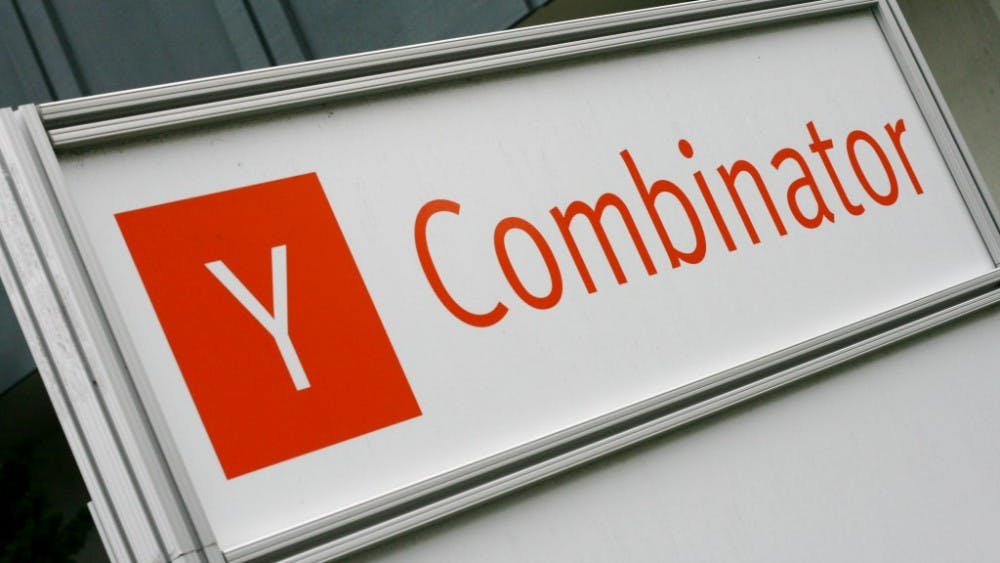Hosted by Johns Hopkins Technology Venture’s FastForward, representatives from the startup accelerator Y-Combinator (YC) held an event in Hodson Hall on Friday. Visiting Hopkins as part of their Winter College Tour. Partner and head of admissions at YC Dalton Caldwell and hardware specialist Luke Iseman gave a presentation about the Silicon Valley-based company followed by a Q&A session with the audience.
Headquartered in Mountain View, California, Y-Combinator is one of the most successful seed accelerators, funding several widely known companies such as Airbnb, Dropbox, Weebly and Reddit. Since beginning in 2005, it has funded over 1,050 startups, including robotics, medical, hardware and app companies.
Working on a batch cycle, Y-Combinator receives applications to take companies into its program twice a year, in the winter and summer. YC invests $120,000 or 7 percent of common stock in every company that it accepts. All admitted company participants are required to temporarily relocate to the Silicon Valley for the program’s three-month period.
The program provides companies with intimate, frequent office hours, during which founders can consult with YC partners about their companies. Additionally, group office hours are held with a number of different companies, so that founders can discuss their respective problems and receive advice from other startups. During weekly “dinners,” all founders in the current batch get a chance to talk with each other and listen to successful startup speakers, such as the founder of AirBnB, the CEO of FitBit, the founder of Dropbox and Mark Zuckerberg.
Caldwell explained the purpose of featuring such speakers.
“Successful startups are often much messier that you would think,” he said. “Hearing the real stories about all the messy things that happened is quite insightful.”
The conclusion of the YC program, the event that all of the startups work toward, is Demo Day, during which each company makes a pitch in front of several hundred prospective investors.
Iseman spoke about what he thinks is the key to startup success.
“I can’t stress this enough: make something. Make a physical thing, show it to people, and you’ve already differentiated yourself from the vast majority who want to someday maybe start a startup,” Iseman said.
“No matter how broken it is, no matter how prone to occasionally catching fire your prototype might be, make it, show it to users. You’ll earn more with one minute of showing to users than you will with a decade of sitting in a room with your smart cofounders, brainstorming about what users might someday want.”
He then followed by stating that not only should hardware companies make physical things, they should also focus on earning profit.
“It really boils down to focusing on, one, making things and, two, making sure people want them and are going to pay you money for them,” Iseman said. “If you’re not making money, you are not growing. Period.”
Earlier in the day, from 2-5pm, Caldwell and Iseman held office hours, similar to those in the YC program, on campus, which students were able to sign up for online. During these one-on-one office hours, students are encouraged to discuss their ideas and concerns regarding their own startup aspirations with the YC representatives. Iseman said some of the projects students discussed with him were promising.
“At Hopkins there are a lot of smart people working hard, and we like that,” he said. “It’s most exciting when we see someone who is starting to actually make things for customers and actually get people to pay for it. Seeing students start to realize that is really exciting.”
Even though YC encourages students to pursue their own startup aspirations, Caldwell noted the difficulty of attending college and starting a company simultaneously.
“I think that it’s very hard to run a successful startup and go to school at the same time,” Caldwell said. “I also don’t think you should drop out. In the most famous case, if you think about Facebook, [Mark Zuckerberg] had something that ninety-five percent of the student body used and he was a celebrity on campus. Every time he scratched his nose, The Harvard Crimson wrote an article about it. If that’s you, then maybe you should drop out, but otherwise, stay in school.”
Students, like senior Joseph Min and freshman Kimberly Zou, came to hear the YC representatives speak to learn more about startups in general and about how they could get involved.
“I’m a computer science major, so I’m pretty interested in the whole venture capitalist, investing-in-startups scene,” Min said. “I’m really excited to hear Y-Combinator talk.”
“I’m interested in the sustainable route of venture capitalism,” Zou said. “I’m hoping to hear what they talk about and how it can apply to me.
Caldwell finished the presentation by stressing that the biggest mistake prospective startup owners can make is becoming intimidated.
“The main message I want to get across to audiences when I go to universities is to say that you can do ,it too. If you want to start a company, the best way to succeed is to just start a company,” he said. “If you someday want to have a funded startup and want to be successful, you should just start doing it today. You don’t need permission from the world. Just do it.”





